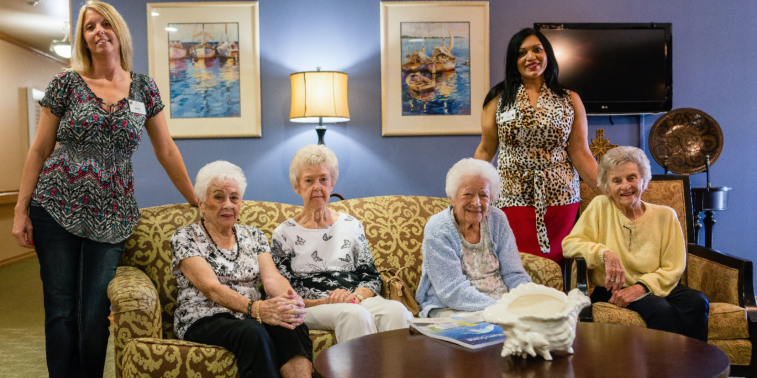Efficient Mental Deterioration Treatment Approaches for a Better Top Quality of Life
In the world of dementia care, the implementation of efficient strategies is vital for boosting the top quality of life for both people affected by the illness and their caretakers. Recognizing the unique phases of dementia allows for customized treatments that deal with the advancing requirements of people-- from promoting cognitive interaction in the very early phases to making certain self-respect in late-stage treatment.
Recognizing Mental Deterioration Phases

In the early stage, individuals may experience mild memory loss and difficulty with familiar tasks. Care methods need to concentrate on keeping self-reliance and giving cognitive excitement. In the late stage, people might shed the ability to require and communicate support with day-to-day activities.
Identifying these stages enables caretakers to adapt their approaches and offer assistance that lines up with the individual's current demands, eventually helping with much better management of the condition and enhancing the general caregiving experience. Recognizing mental deterioration phases is therefore a foundational facet of effective dementia care.
Interaction Methods
Effective interaction is an important part of mental deterioration care, especially as the condition progresses with its different stages. As cognitive capacities decline, it becomes important to adjust communication techniques to meet the needs of individuals with dementia. Using clear, simple language is important; caretakers ought to prevent complicated sentences and jargon, deciding rather for straightforward, concise expressions.
Non-verbal communication plays a just as substantial duty. Facial expressions, gestures, and intonation can share heat and understanding, typically enhancing verbal messages. Preserving eye contact and an open stance cultivates a sense of connection and safety, motivating people with dementia to involve even more completely in conversations.
It is additionally beneficial to be client and allow enough time for feedbacks. Individuals might call for extra time to procedure info and develop their ideas. If comprehension shows up lacking., duplicating or putting in other words questions might be required.
Lastly, concentrating on the individual's interests and individual history can promote much more meaningful communications. Participating in familiar topics can stimulate favorable memories and emotions, further improving the interaction experience (memory care facilities charlotte). By using these techniques, caregivers can significantly improve the top quality of interactions, promoting dignity and respect for individuals living with dementia
Producing a Safe Atmosphere
Producing a secure atmosphere for individuals with dementia is necessary to advertising their wellness and freedom. A properly designed room can substantially decrease the threats of crashes and enhance the quality of life for those affected by this condition.
Lights plays an essential duty as well; using natural light any place feasible and including night lights can site web assist individuals browse their surroundings safely. Additionally, labeling areas and vital items can aid memory and alignment, decreasing confusion and anxiousness.
It is also crucial to produce a familiar setting by personalizing the area with photographs or treasured products, which can evoke positive memories and a sense of belonging.
Incorporating furniture that is both comfortable and functional adds to a supportive ambience, permitting individuals to take part in day-to-day activities easily. Inevitably, a safe environment not only safeguards versus physical risks yet also fosters a feeling of security, which is necessary for the emotional wellness of those living with mental deterioration.
Involving Tasks and Routines
Involving activities and structured routines are crucial elements in the care of people with mental deterioration, as they promote cognitive feature, emotional security, and social interaction. These tasks should be tailored to the individual's his comment is here interests, abilities, and phase of cognitive decline. memory care facilities charlotte. Straightforward, repetitive jobs such as horticulture, arts and crafts, or cooking can provide purposeful engagement, permitting people to utilize their abilities while cultivating a feeling of accomplishment
Establishing a day-to-day routine aids create a predictable atmosphere, which can minimize stress and anxiety and confusion. This structure can include marked times for meals, activities, and remainder, making sure a balanced approach to day-to-day life. Including social communications into these routines, such as team tasks or going to family members, more enhances emotional health and combats sensations of isolation.
In addition, exercises, such as walking or dancing, not just advertise physical wellness yet additionally stimulate psychological interaction. Encouraging participation in neighborhood events or support system can supply extra chances for socializing. Generally, the combination of structured routines and interesting tasks is important in boosting the top quality of life for individuals with mental deterioration, cultivating freedom and self-respect while resolving their unique requirements.
Sustaining Caregiver Well-Being
Taking care of individuals with mental deterioration can be a requiring and emotionally taxing experience, making it critical to focus on the health of caregivers. Caretakers usually face high levels of stress, anxiousness, and physical exhaustion, which can cause fatigue if not dealt with suitably. To support their well-being, it is important to implement a multifaceted approach.
First, supplying caretakers with accessibility to education and sources can encourage them with techniques to handle everyday challenges. Support system, both in-person and online, provide a system for sharing experiences, cultivating a feeling of community, and minimizing sensations of seclusion. In addition, reprieve treatment services make it possible for caregivers to take needed breaks, enabling them time to reenergize and attend to their very own wellness needs.
Furthermore, encouraging caregivers to participate in self-care techniques-- such as regular exercise, healthy consuming, and mindfulness-- can considerably enhance their resilience. Promoting open communication concerning their sensations and challenges with relative or professionals likewise assists minimize emotional concerns.
Final Thought
To conclude, efficient mental deterioration care techniques include an extensive understanding of the condition's stages, More about the author the application of clear communication techniques, the facility of a risk-free environment, and the promotion of organized regimens and engaging activities. Additionally, prioritizing the wellness of caregivers is important to sustaining top quality care. By integrating these methods, the general quality of life for individuals with dementia can be considerably boosted, promoting a helpful atmosphere that advertises dignity and emotional well-being.
In the world of mental deterioration care, the application of effective techniques is critical for improving the high quality of life for both people impacted by the illness and their caretakers. By using these techniques, caretakers can significantly boost the quality of communications, advertising self-respect and regard for people living with dementia.

Caring for people with dementia can be a demanding and mentally tiring experience, making it vital to prioritize the health of caregivers.